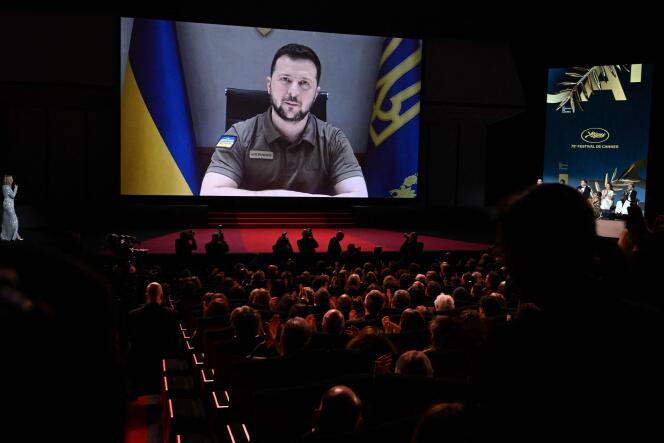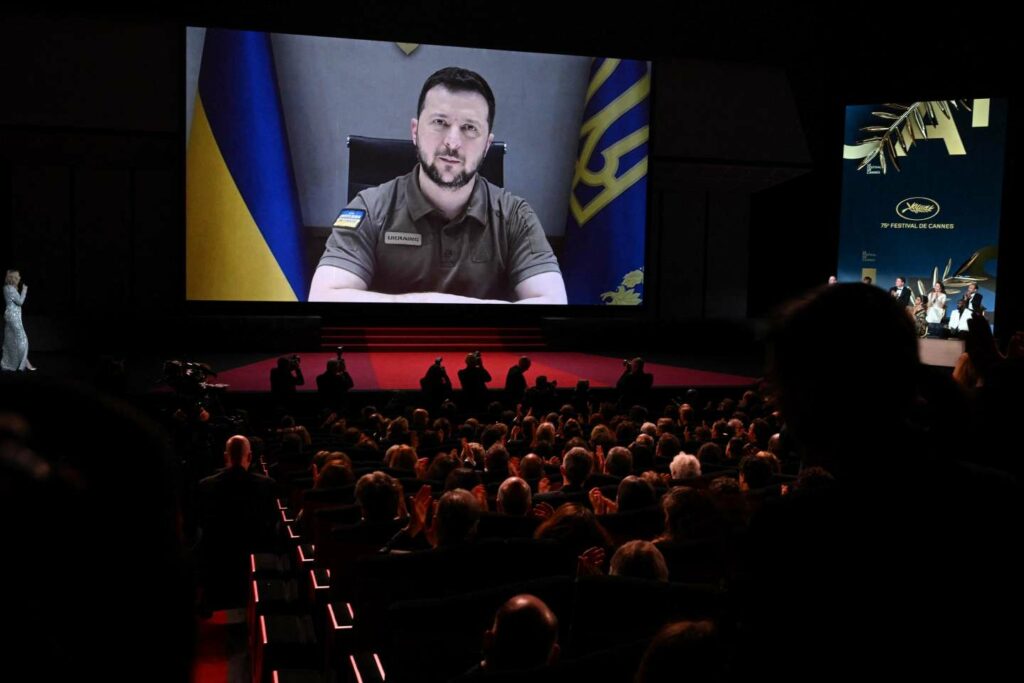
Tuesday, May 17, at 7 p.m., the seventy-fifth edition of the International Film Festival was inaugurated, ready to sail under full sail with a contained pandemic and the announced return of professionals. It fell to the mermaid Virginie Efira to embody, all in silver lamé, matching ring and streaming blonde hair, the undulating adornment of the opening ceremony.
On the other side of the decor, at the helm, a new armada. That of France Télévisions, which replaces Canal+ for the official coverage of the festival and which went all out by mobilizing all its channels. It is also the return of the historic producer of the Cannes television ceremonial, Renaud Le Van Kim, ousted from Canal+ a few years ago, who returns to operations both with the public service group and with Brut, a high-performance information platform that he has created in the meantime, and which should bring a new strike force, towards young people on the one hand, and abroad on the other, to the disclosure of the event.
It is true that the old lady from Cannes, with her more or less outdated rituals and her immutable appearance, demands to be both respected and jostled. The world around her is on fire, the images migrate, as for the cinema, it trembles on its foundations. We will not repeat here, for the thousandth time, the reasons, while vaticinating about his imminent death and invoking ad libitum the ghosts that dig his grave.

The current challenge of the festival would not be understood, however, without having this great theater of change and the danger of these abysses in mind. Thierry Frémaux the first, in the columns of the magazine Full screen of May, worries about it: “In twenty-five years, our children shouldn’t ask us why we let cinemas die. » Even though they will reproach us, more surely, for having ransacked the entire planet, we can clearly see that today the challenge of the festival, more than ever, consists in sparing the light and the heavy, the glamorous and the tragic, dream and worry.
Tears in the eyes, standing ovations and collective vibratos
If he needed a more than encouraging sign of how he intends to take it up, the opening ceremony gave it in barely an hour. She was perfect from start to finish. Imprint of sobriety, dignity, emotion, surprise, accuracy. So far from the peaks of boredom and self-satisfaction that too often arouses this kind of event.
Undoubtedly, the awareness that the hour was serious had a lot to do with it. And the art of dialectic was so well carried out there, between the din of the world and the way in which the cinema responds to it, between the love of men and the courage of ideas by which the seventh art, in that it has more noble, takes us away without firing a shot. A ceremony that took place in short like a film, in a dramaturgy whose success is to be credited to many talents. First of all, the scenography, wide open to the city thanks to panels where the urban landscape itself was filmed. Beautiful idea that this link restored between the closed vase of the ceremony and the surrounding reality. The mistress of ceremonies, beautiful, vibrant, herself affected, and sometimes overwhelmed, by the emotion of such and such a moment. The president of the jury, Vincent Lindon, author of a speech written and read on stage without failing, of an incredible outfit, to celebrate this « Weapon of Massive Emotion » what is cinema.
You have 35.03% of this article left to read. The following is for subscribers only.

